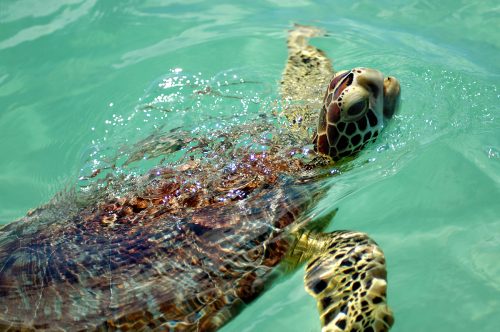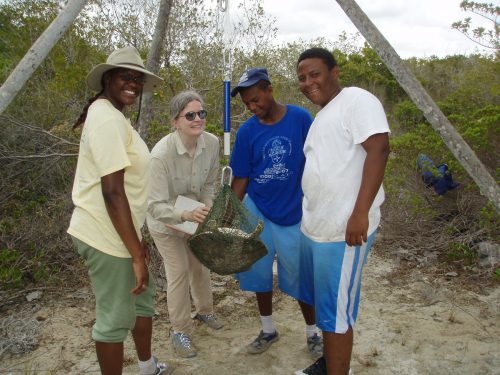Conserving sea turtles has far-reaching effects on the health of marine ecosystems because sea turtles and other large animals maintain diversity and stability in our oceans. The recent decline of coastal marine ecosystems are largely a result of over-exploitation by humans of large carnivores and herbivores – including sea turtles – beginning hundreds or thousands of years ago.

In the Atlantic, sea turtle populations have declined by about 90% from their former abundance. By restoring sea turtle populations, we ensure that they can fulfill their ecological roles and restore healthy and productive marine ecosystems. Healthy marine ecosystems not only benefit wildlife but also benefit humans by providing food, stable shorelines, and recreation.
ACCSTR affiliates undertake research at all scales from the molecular to the ecosystem level, from studies of population structure based on mitochondrial DNA to the effects of ocean circulation patterns on the movements and distribution of sea turtle populations. With a large research university as a base, we take an interdisciplinary approach to address complex problems of sea turtle biology and conservation. ACCSTR research faculty are drawn from a wide range of specialties within the University of Florida community including biology, human and veterinary medicine, biotechnology, and environmental engineering.

The ACCSTR has a very active graduate student program with students from a number of departments at the University of Florida. The involvement of graduate students in our research ensures that, while answering critical questions in sea turtle biology, we are also educating future sea turtle biologists and conservationists.